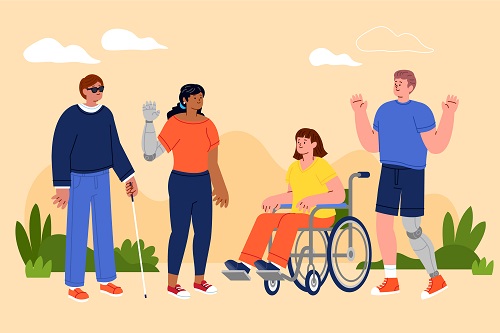A 'vulnerable child' is child who is unable to protect himself or herself, and this includes a child who is dependent on others for his/her sustenance and protection.
Age, health and physical/mental/ emotional social development of a child are the factors which can make him vulnerable.
Counselling for Children with Disability:
A ‘child with disability’ means a child with long-term physical, mental, intellectual or sensory impairment which hinders his full and effective participation in society equally with others.
Counselling is necessary for children with disability as they have following special needs:
1. To gain coping skills in life
2. To gain self-regulation
3.To improve self esteem
4. To understand their strengths and weaknesses
5. To learn social skills and social thinking
6. To make the child a better functioning child.
Importance & Role of Counselling for disabled children:
1. Counselling can help in identifying the disabled children who need special education. It can also help in coping with the child's problem of integrating with his group. Some children with learning disability may look as if they are perfectly normal. Identifying and dealing with such children can be ably done by counselling.
2. Counselling can identify the challenges faced by children facing physical and emotional disabilities, and advise the steps necessary to meet such challenges.
3. Counselling can help the disabled children improve their time management and organizational skills.
4. Counselling can also help in designing a tailor-made programme suitable for each individual child. Counsellor can also evaluate the advantages and disadvantages of each such programme and make remedial changes.
5. Counselling can help the disabled children in improving their social, communication and other interpersonal skills. This goal can be better achieved by one-to-one counselling.
6. Counselling can help the disabled child gain self-confidence and self esteem.
7. Counselling can be extremely useful in guiding the parents of the disabled child as to how to treat the child physically, socially and emotionally.
8. In a nut-shell, a counselor can guide the disabled child as to how to deal with the people around him.



